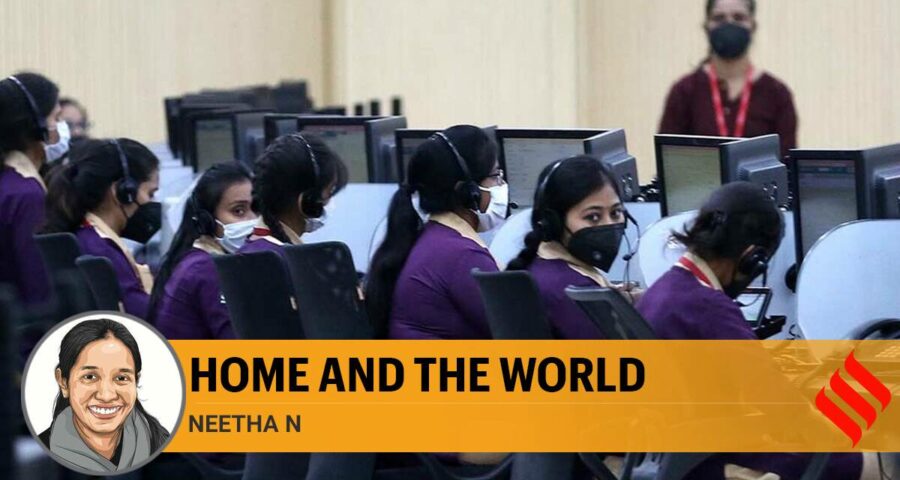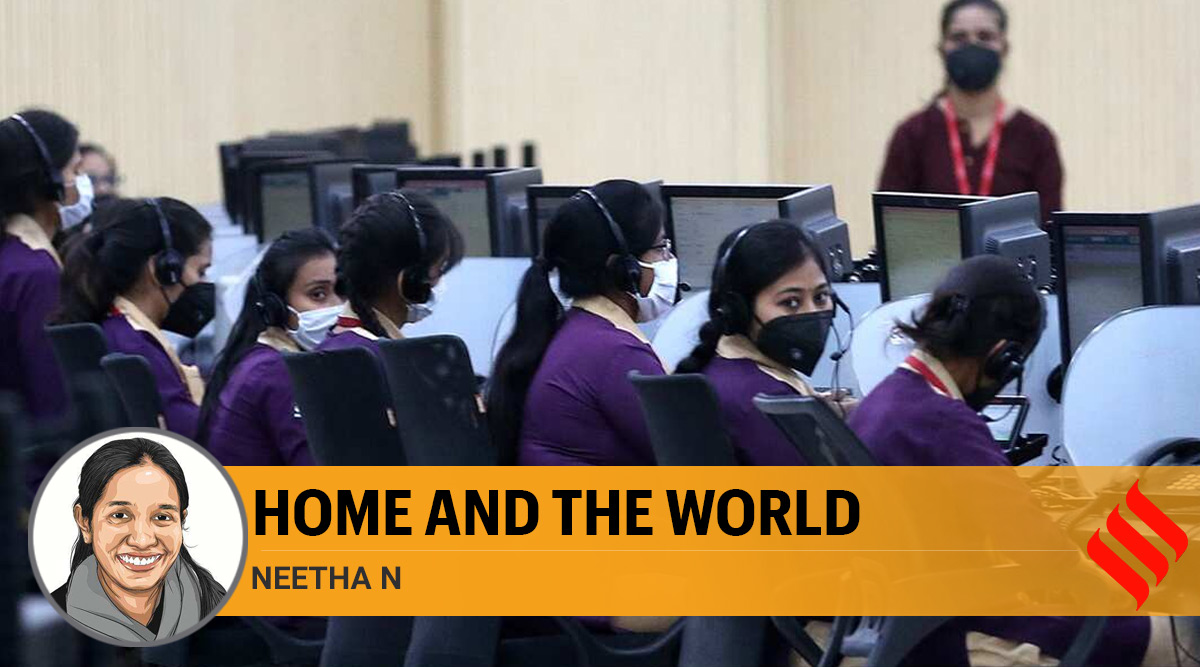Acknowledging the burden of housework on women is welcome. But more needs to be done to address their exclusion from employment.
At a time when four states and the UT of Puducherry are heading for elections, housework and recognising those who do it have become topics of public discourse. In the poll-bound states in south India, housework has figured in manifestos. In Kerala, the ruling Left government has promised pensions for people who do housework. Shashi Tharoor, Congress MP from Kerala, has supported the idea of paying home workers, an idea which was first floated by the actor-politician Kamal Hassan in December 2020. In Tamil Nadu, apart from Kamal’s Makkal Needhi Maiam (MNM), housework figures in the manifestos of all major political parties, though the amount of payment promised varies from party to party.
The need to recognise the burden of housework on women has been an issue for long, limited to women’s and progressive movements. But how does one read the sudden recognition of housework by political parties? Many may think that it was Hassan’s promise that triggered its inclusion. Political parties do compete in terms of their promises. But wages for housework as an electoral promise needs to be understood in the larger context of its timing.
During the lockdown, when many families were homebound without help or the option of eating out, the burden of housework became striking. Men, who usually do not participate in much housework, were partially forced to share the work. This helped in busting the myth of housework being easy. For many middle-class families, housework is more than basic cooking and cleaning. There is also care work such as educating or overseeing children’s overall development and taking care of the elderly, which has increased with online schooling and reduced options of hospitalisation. For the poor, while these were not the concerns, the struggle to keep everyone fed with little or reduced income and caring for the ill were the challenges.
The acknowledgement of housework by political parties is surely the beginning of a welcome realisation of the need to reorient society to women’s contribution to housework. But how does one explain the apathy of political parties to women’s employment questions — their reluctance to address women’s exclusion in employment?
Workforce participation rates of women have been declining even before the pandemic. The data and field reports during the pandemic indicate a worsening of women’s employment with the participation rates falling to 11 per cent, against 71 per cent for men as per CMIE data. The decline is biased towards urban areas with the rate falling to 6.9 per cent. This fall in female employment is a matter of critical concern but has not received the required attention from political parties. Volunteer workers (ASHAs, Anganwadi volunteers and other scheme workers), though a part of the state machinery, are not even acknowledged as workers and are denied all labour rights. Paid domestic work is another sector which has for long been neglected from the perspective of labour laws and policies. In India as per PLFS 2018-19 data, there are considerable wage differentials between male and female workers, be it casual or regular wage work. It is true that women are never free from housework even when they are engaged as paid workers and primary breadwinners, and unpaid housework impacts women’s participation and nature of paid work. But how paying for housework would help in addressing the larger issues is debatable, especially from the perspective of women’s equality.
Addressing exclusionary and discriminatory tendencies in the labour market is surely a way to redefine the labour of women and this also needs to be given the required attention. The current indifference around women’s employment can only be seen as an acceptance of a larger economic reality, with state after state competing to ensure cheap and flexible labour. In the given economic context, providing wages for housework may prove advantageous to employers, since a part of household expenses of ill-paid workers would be now taken care of by “state-paid” homemakers. This essentially frees the former from the onus of paying a wage that provides for the social reproduction of the next generation of workers.
This column first appeared in the print edition on April 5, 2021 under the title ‘Home and the world’. Neetha N is professor at the Centre for Women’s Development Studies, New Delhi
Source: Read Full Article


